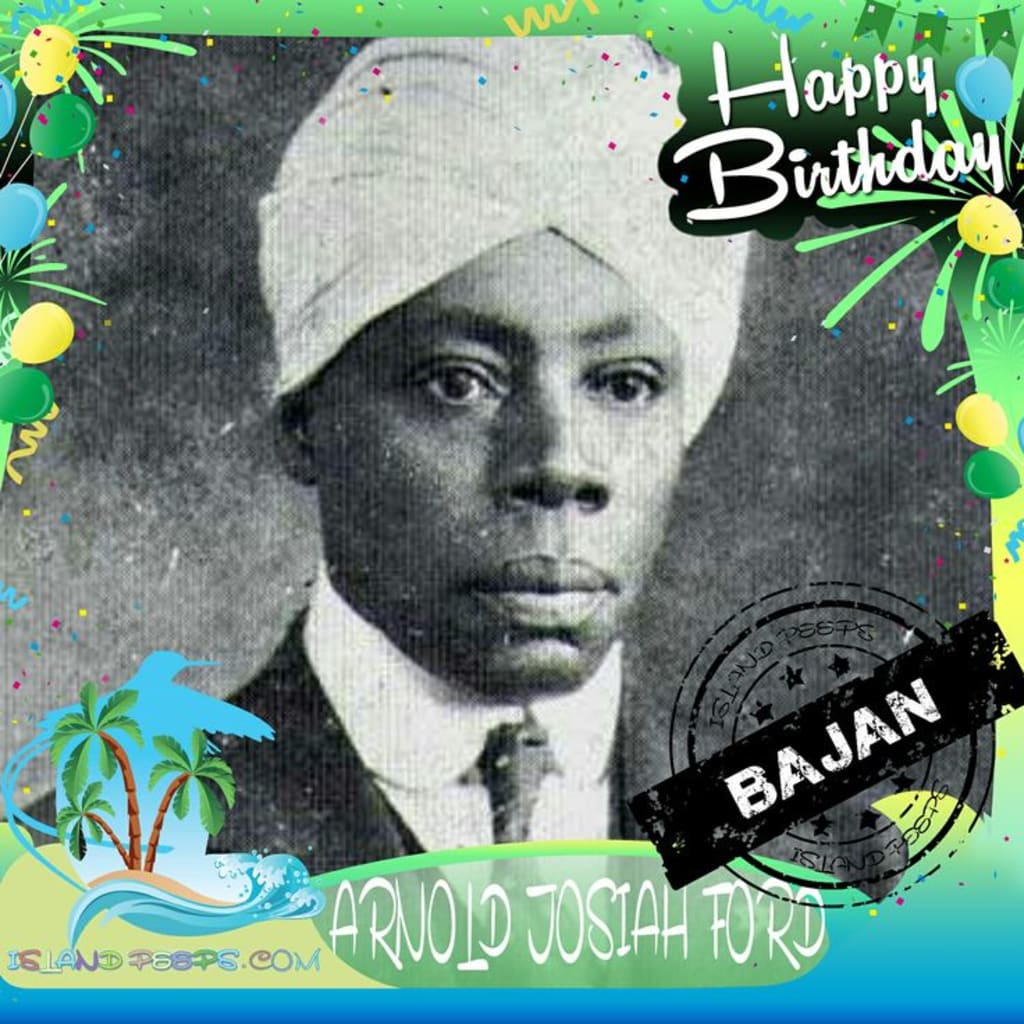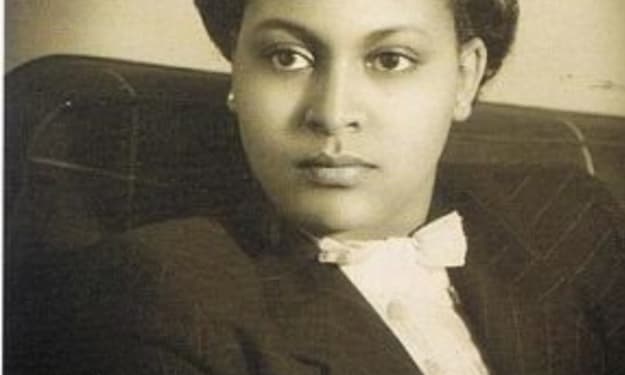Remembering Arnold Josiah Ford: The Musical Genius of the Harlem Renaissance
Exploring the Life and Legacy of a Pioneering Musician and Spiritual Leader in African American History

Arnold Josiah Ford was an African American musician, composer, spiritual leader, and activist who played a significant role in the Harlem Renaissance of the 1920s and 1930s. As a key figure in the Harlem Renaissance, Ford made groundbreaking contributions to the fields of music, spirituality, and civil rights activism. This post will explore the life and legacy of Arnold Josiah Ford, focusing on his spiritual leadership and trailblazing activism for African Americans. We will delve into his unique spiritual teachings and practices, his contributions to African American cultural identity, and his intersectional approach to spirituality and social justice. We will also reflect on the continued relevance of Ford's legacy today and its impact on modern spiritual leaders.
Ford's Spiritual Journey
Arnold Josiah Ford's spiritual journey began in his childhood in Barbados, where he was raised in the Anglican church. He later converted to Catholicism and was influenced by the teachings of the Baha'i faith, which emphasized the unity of all religions. These early spiritual experiences laid the foundation for Ford's future spiritual endeavors.
Faith played a crucial role in Ford's activism and musical career. He believed that his music was a form of spiritual expression and that his activism was guided by his faith. Ford's spiritual beliefs also shaped his philosophy on social justice, which he saw as a fundamental aspect of spirituality. He believed that true spiritual liberation could only be achieved through social equality and that spiritual and political activism were inseparable.
Ford's leadership in the Spiritual Churches of New York was a key aspect of his spiritual journey. The Spiritual Churches were a group of African American churches that blended African spiritual traditions with Christianity. Ford was a respected leader within the Spiritual Churches and was known for his spiritual teachings and musical performances. He also composed music for the Spiritual Churches and believed that music had the power to connect people to the divine.
Ford's Contributions to African American Spirituality
Arnold Josiah Ford made significant contributions to African American spirituality through his unique spiritual teachings and practices. He blended African spiritual traditions with Christianity and believed in the power of music and dance as forms of spiritual expression. Ford also believed in the importance of spiritual liberation as a means of achieving social justice.
Ford's impact on African American spirituality and religion was significant. He was a trailblazer in the exploration of African spiritual traditions and their integration with Christianity, which paved the way for the development of new forms of African American spirituality. His work was also influential in the development of the Black Arts Movement, which emphasized the importance of African American cultural identity.
Ford's approach to spirituality and social justice was intersectional, meaning that he saw the two as inherently connected. He believed that spiritual liberation could only be achieved through social equality and that social activism was a fundamental aspect of spiritual practice. This intersectional approach to spirituality and social justice was revolutionary in its time and has continued to inspire modern spiritual leaders who advocate for social justice.
Ford's Trailblazing Activism
Arnold Josiah Ford was not only a spiritual leader but also a trailblazing activist for civil rights. He was actively involved in the Civil Rights Movement and was a member of several civil rights organizations, including the National Association for the Advancement of Colored People (NAACP) and the National Negro Congress. He used his music and poetry as a means of protest, and his songs were often anthems for civil rights activists.
Ford's contributions to African American cultural identity were significant. He was a pioneer in the exploration and promotion of African American folk music and was known for his arrangements of spirituals and gospel music. He also founded the Black Music Division of the American Society of Composers, Authors, and Publishers (ASCAP), which provided a platform for African American composers and musicians to have their work recognized and protected.
Arnold Josiah Ford's influence on future generations of African American leaders cannot be overstated. He was a mentor to many young musicians and artists, including Langston Hughes and Paul Robeson. His activism and contributions to African American culture inspired a new generation of leaders who continued to fight for civil rights and promote African American cultural identity.
Ford's legacy as a spiritual leader and activist continues to inspire people today. His unique approach to spirituality, which emphasized the importance of spiritual liberation and social justice, paved the way for future generations of spiritual leaders who see activism and spirituality as inherently connected. His contributions to African American cultural identity and his work as an activist for civil rights serve as a reminder of the power of art and music in promoting social change.
Remembering Ford's Legacy Today
Despite passing away over 75 years ago, Arnold Josiah Ford's legacy continues to be relevant and influential today. His teachings on spirituality and social justice remain a source of inspiration for many, and his contributions to African American cultural identity continue to shape our understanding of the arts and music.
Ford's legacy has inspired many modern spiritual leaders who see the importance of integrating spirituality with social justice activism. His emphasis on spiritual liberation as a means of achieving social justice remains an important tenet of many contemporary spiritual movements, particularly within the African American community.
There are many opportunities for continued appreciation and preservation of Arnold Josiah Ford's spiritual teachings. For example, his compositions and arrangements of spirituals and gospel music continue to be performed by contemporary choirs and musicians, keeping his music alive and accessible to new audiences. Additionally, there are several organizations dedicated to promoting African American cultural identity and preserving the legacies of important figures like Ford, such as the Smithsonian National Museum of African American History and Culture.
As we remember Arnold Josiah Ford today, we can appreciate the significant impact he had on African American spirituality, music, and activism. His legacy continues to inspire us to strive for spiritual liberation and social justice, and to recognize the powerful role that music and the arts can play in shaping cultural identity and promoting positive social change.
Conclusion
Arnold Josiah Ford's legacy as a spiritual leader and trailblazer for African Americans continues to be an important part of our cultural heritage today. Through his spiritual teachings and musical contributions, he left a lasting impact on the Harlem Renaissance, the Civil Rights Movement, and the African American community as a whole.
Ford's spiritual journey, unique teachings, and contributions to social justice activism illustrate the powerful intersection between spirituality and social change. His influence continues to inspire modern spiritual leaders and encourages us to appreciate the importance of spiritual liberation as a means of achieving social justice.
As we remember Arnold Josiah Ford today, let us reflect on his significant contributions to African American spirituality and activism. Let us also be inspired to continue to learn more about his life and legacy, and to incorporate his teachings into our own lives as we work towards a more just and equitable society.
Final Note
If you’re interested in exploring who is Jah further, we invite you to check out Fifth Degree’s collection of Rastafarian clothing. Our clothing is designed to reflect the spirit and teachings of Rastafarianism, with bold colors, empowering messages, and a commitment to sustainability and ethical production. We believe that what you wear can be a powerful expression of your values and beliefs, and we’re proud to offer a range of high-quality, stylish, and socially conscious clothing for individuals who are seeking to live in harmony with nature and the divine. Visit our website today to learn more about our collection and find the perfect Rastafarian clothes for woman for you.
About the Creator
Enjoyed the story? Support the Creator.
Subscribe for free to receive all their stories in your feed. You could also pledge your support or give them a one-off tip, letting them know you appreciate their work.






Comments
There are no comments for this story
Be the first to respond and start the conversation.